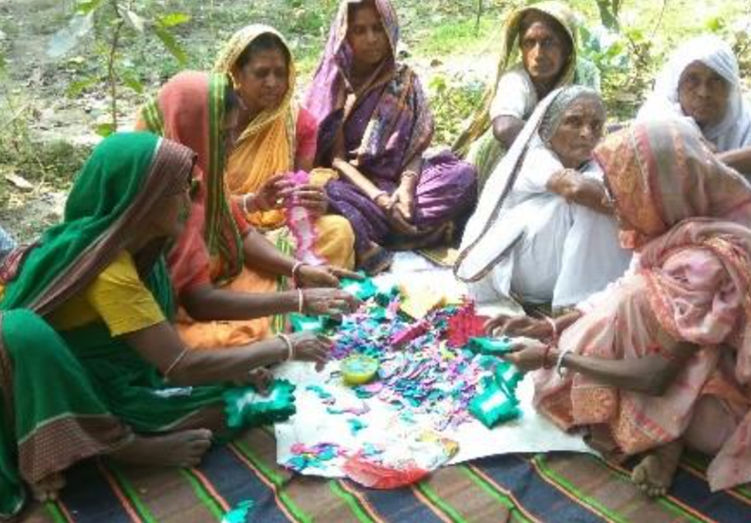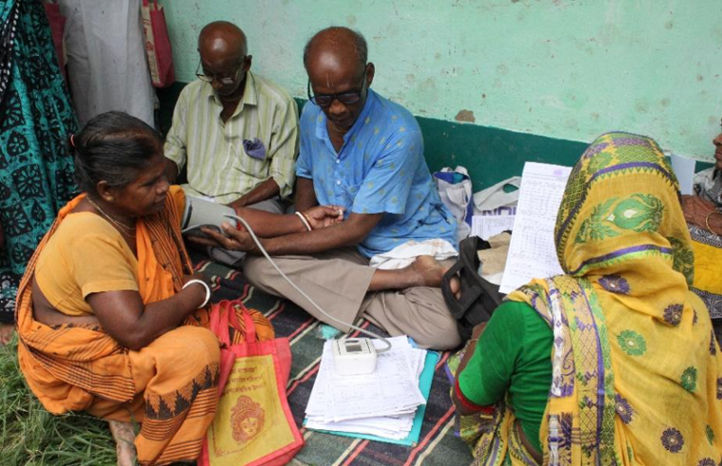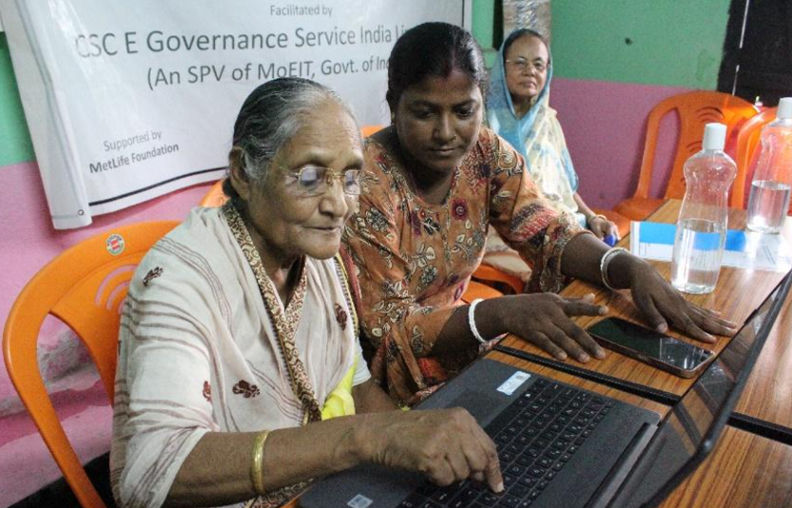Our Work
OUR WORK
Elder Self Help Groups
With 90 per cent of the elderly belonging to the unorganised sector (with no or limited social security), majority have to work in order to survive. The established practice has been of viewing and treating this demographic, as dependents and burdens. HelpAge India’s pioneering Elder-Self-Help-Group model under its Livelihoods Mission has helped bring about a change both on-ground for older persons and their families and communities as well as in a mindset shift with regard to the capabilities and rights of the elderly.
It has helped challenge the old narrative where the elderly have by default and design, been kept in the recipient mode of institutional and state charity, to a narrative where elderly are seen as a productive and contributing force participating in national and economic well-being.
HelpAge India formed the first Elder-Self-Help-Group in Tamil Nadu to help elderly persons, particularly women, rebuild their lives, as part of the rehabilitation process after the 2004 tsunami. Over the past 20 years it has replicated this pioneering model across the country.
The Livelihood programme is a long-term, process intensive intervention typically extending to 3-5 years and encompasses five areas: i. Social Inclusion ii. Financial Inclusion iii. Health Inclusion iv. Accessing rights & entitlements v. Digital Inclusion.
70% of these Groups today are now functioning independently as a sustainable income generation model.
The model is promoting solidarity among the elderly, helping them fight discrimination, boredom, neglect and abuse, with its unique ‘Elders for Elders’ philosophy. It has been adopted by the National Rural Livelihoods Mission under the Ministry of Rural Development and by the Ministry of Social Justice & Empowerment.
HelpAge India is supporting the Ministry of Social Justice & Empowerment under its Action Groups Aimed at Social Reconstruction Program through a Technical Support Unit providing handholding and training across 15 states and is the Technical Support Agency for the National Rural Livelihoods Mission.
1L+
Elders supported through Elder-Self-Help-Groups
75,000+
Elder Self Help Groups formed across India
70%
Elder Self Help Groups functioning independently
Financial, Health, Social & Digital Empowerment

Establishing the habit of saving among the elderly is one of the significant successes of the ESHG approach. Overwhelmingly, members believe that after becoming members of ESHGs, their social stature and economic conditions have improved to a great extent, and with this, the attitude of their children towards them has also improved as well as by society members. Elders, who are part of ESHGs, are involved more in decision-making, both within their families and the larger community. These elders are more confident and secure – both socially and economically – and are able to reduce the feeling of loneliness and fear of the future.

It is recognised that very often due economic insecurity and access issues elderly resort to Inappropriate Health Seeking Behaviour (IHSB) like seeking healthcare from chemists, traditional healers, quacks, family members or doing nothing at all. ISHB is reflected as worsening health outcomes, increased morbidity and mortality and poorer health. Elders who are part of ESHGs do not display this kind of behaviour and are usually not only healthier but also better informed about healthy practices, thanks to community discussions.
Many of the elders who earlier faced abuse at the hands of their loved ones are now able to live a life of dignity. They are also able to help other elders facing abuse by helping them take legal action against them. ESHG members are very often seen to become change makers in their communities, who inspire others to walk on this path of independence.

In the digital era, right from accessing government entitlements to getting weather updates for agriculture is dependent on digital literacy. In such a scenario, digital inclusion is of utmost importance to elders. Under the ESHG model, 54 Common Service Centres have been institutionalised and linked to CSC e-Governance to connect poor disadvantaged elders to government schemes & services. 5000 rural elderly have been trained under the PMGDISHA Curriculum.

